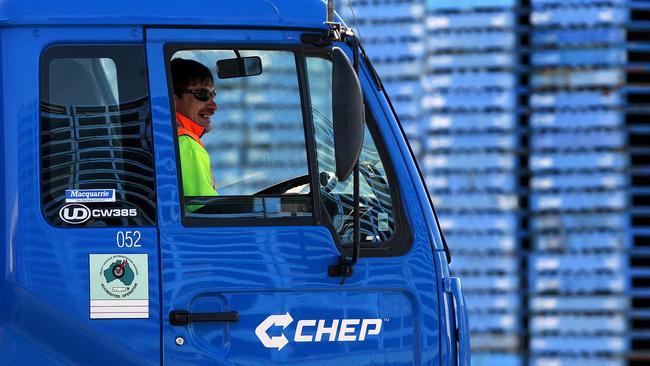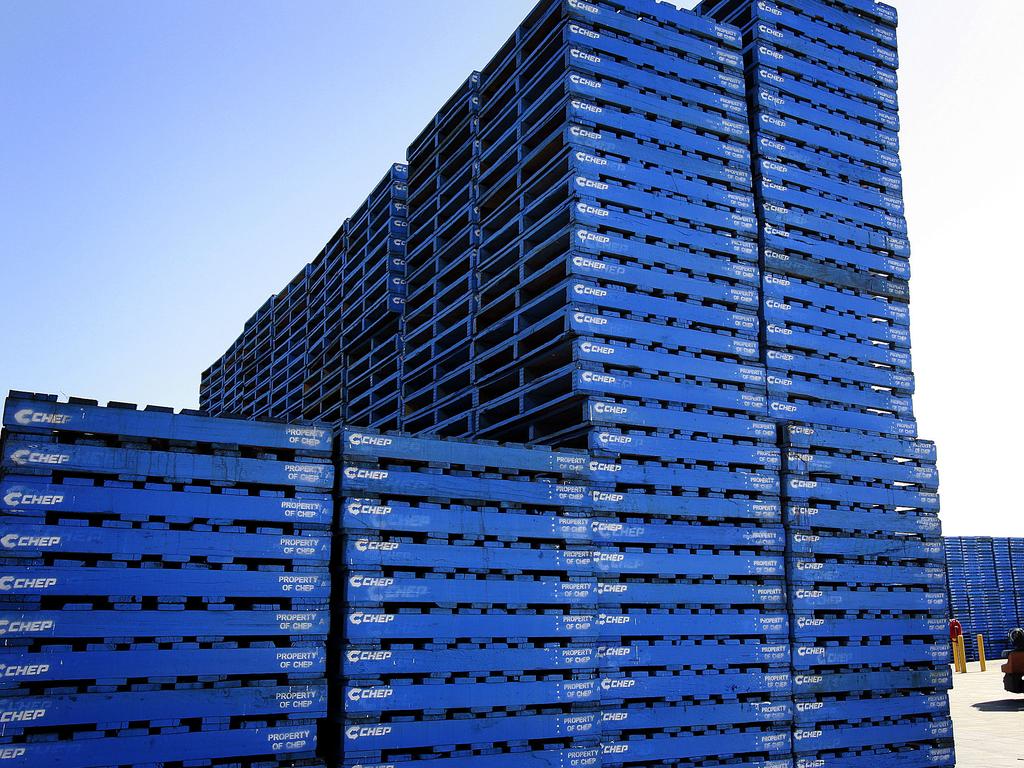Brambles tips 2021 to deliver ongoing volatility and inefficiencies
Pallets and logistics major Brambles is expecting the rollercoaster ride of the past year to run full throttle into 2021.

Pallets and logistics major Brambles is expecting the rollercoaster ride of the past year to run full throttle into 2021, with a weak global economy continuing to fuel more market volatility and, as a result, “inefficiencies” across its network.
The company had a record year across its consumer staples business, which represents about 80 per cent of its revenue, as consumers stripped items off supermarket shelves fearing they would be left without essential supplies during the coronavirus pandemic.
But the automotive and beer keg business was a drain on the business, as shutdowns of pubs and car factories wiped $US23m ($32m) off its profit.
Chief executive Graham Chipchase is expecting the company’s revenue to be flat or up a modest 4 per cent this year as COVID-19 hammers the global economy.
“The FY21 outlook assumes ongoing demand volatility in the context of a weaker economic environment and recognises the inefficiencies which arise across our network during periods of volatility,” Mr Chipchase said at the group’s annual meeting on Thursday.
“To date our group performance remains broadly consistent with our experience in July and within the guidance range we provided at the full-year results announcement.”
Despite COVID-19 fuelling “extreme demand volatility”, Mr Chipchase said Brambles had been able to ensure uninterrupted service to its consumers.
“Our operational employees changed shift patterns, processes and site protocols to deliver record levels of output,” he said.
“Their exceptional efforts allowed us to provide uninterrupted service to our customers and to strengthen our position as a supply-chain partner of choice in over 60 countries around the world.
“In our consumer-staples businesses, which account for approximately 80 per cent of revenues and largely comprise our global pallet operations, we saw record levels of demand as consumers loaded their pantries and increased their ‘in-home’ consumption of food and household products.
“This demand drove both higher revenues and extra costs as we processed record levels of pallet volumes across our network and sought to limit the level of capital expenditure required to meet these temporary spikes in demand.”
But Mr Chipchase said the coronavirus hit the group’s automotive container and beer keg transport business hard.
As well, the “suspension of the automotive manufacturing industry and significant reduction in ‘on premise’ consumption of beer” also weighed on profits.




